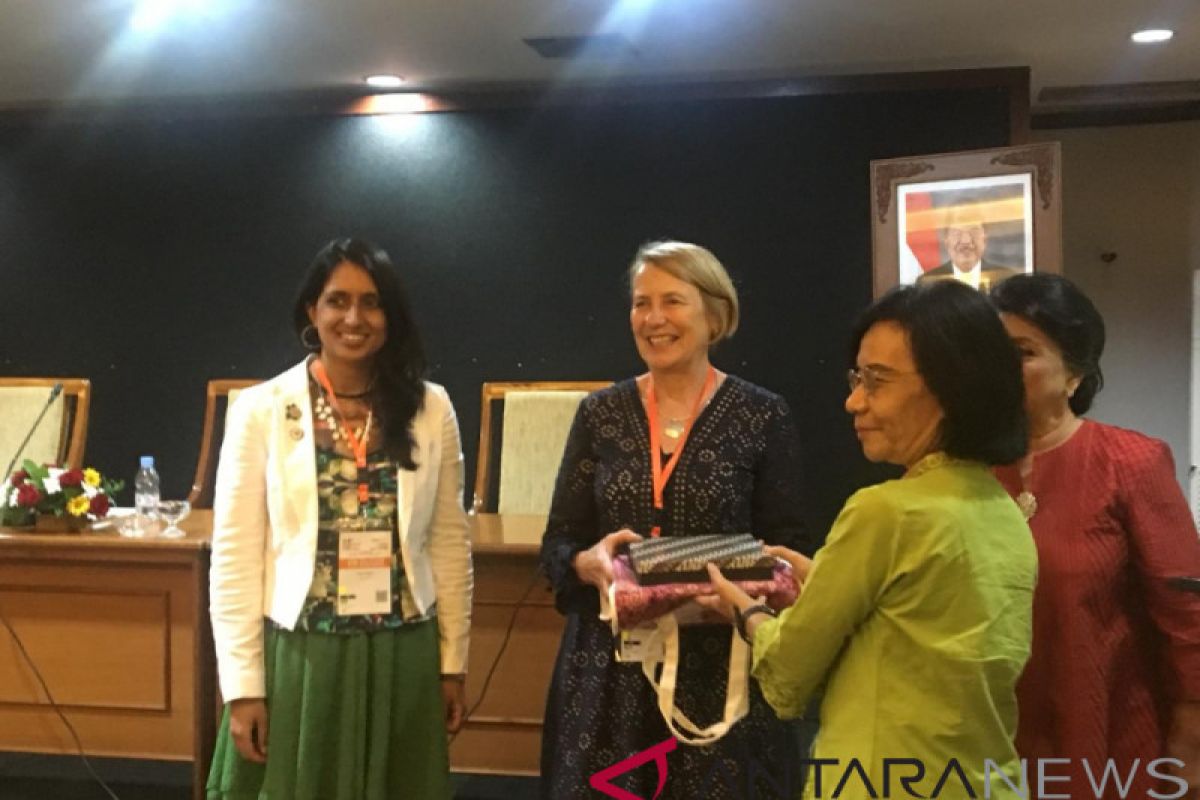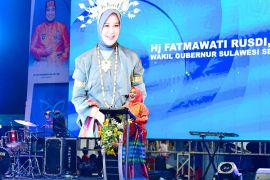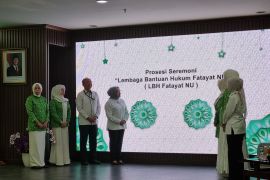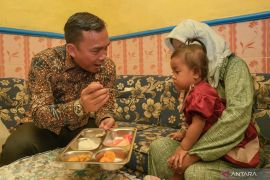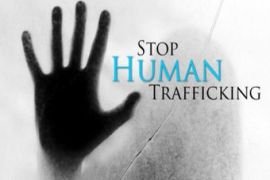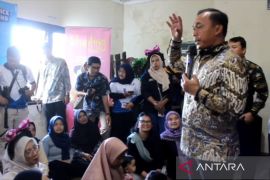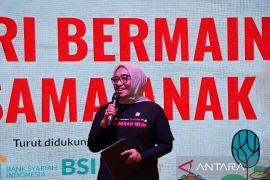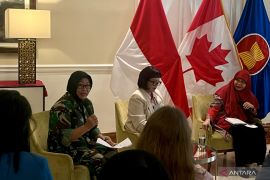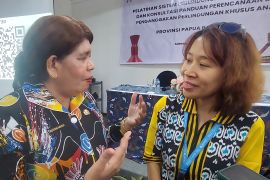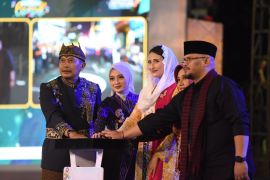In this digital era, where everything moves rapidly and information travels fast, basic education has become the prerequisite for those who wish to take part in the ever-moving discussions.
It becomes apparent that education has a huge impact on both men and women. For women specifically, education can turn them to not only resourceful individuals, but also agents of change.
In a workshop session themed `Women`s Empowerment through Education`, which was a part of the International Council of Women`s 35th General Assembly held in Yogyakarta from September 13 to 18, President of the National Council of Women Australia Barbara Baikie stated that it is important for young women to see what they can ultimately strive to push boundaries and further prove that young girls and women can succeed.
She believed that all of that can be achieved with education, as she reiterated that it is important to start at a young age, so that they can grow to be accustomed to the studying measures early.
Children, who go to pre-school, she continued, are proven to do much better at school showing the importance of early education once more.
Importance of education
In the workshop session taking place at Grand Inna Hotel Malioboro, Yogyakarta, where the General Assembly is being held, a group of 15 women, led by Barbara Baikie and Vanisa Diru, who is President of the NCW New Zealand, got together and discussed many issues related to education for women and young girls.
One of the topics they highlighted was the importance of education for women, and it was made clear that there were many ways that education could empower them, and it went beyond the basic idea that it gave them the necessary resources to further enrich themselves with new understandings and knowledge.
Being educated earns them respect in the society as it gives them real-life skills that they can practice in their daily lives, enabling them to stand alongside their male counterparts, especially in professional settings.
This will then give them the self-esteem and sense of self reliance that can take them further both professionally and personally, as they will be reluctant in taking high-risk decisions that are based off of their own judgments and considerations.
Knowledgeable women also have more resilience compared to those who have not yet been exposed to education, as they will have more resources, and their ability to bounce back from the knock-downs will be more prominent.
This, again, is reinforced by the self-reliance and self-sufficiency they have built from having been educated.
They believe in themselves when it comes to tackling life challenges, which ultimately give them the experience and maturity that will be helpful in facing future life obstacles.
In relation to that, Baikie stated that a lot of researches show that companies with women directors are more successful and are the best at surviving.
Furthermore, another point that was highlighted was the fact that education has brought them freedom, and one of the examples given by Baikie is the ability to choose to get out of a bad and abusive relationship without having to worry about being dependent on their partners.
Being educated has given them enough self belief and confidence they need to be secure and rely on themselves outside of the relationship.
Questioning everything
Educated women tend to have more critical thinking than their colleagues, who are not. They are used to questioning everything, rather than accepting information or directives as they are.
Their world views will also become broader rather than having narrow perspectives, and Baikie believes that these are the qualities in women that can break down stereotypes, even racism and sexism.
After such fruitful initial discussion, the participants were then divided into two groups in which they were asked to share the barriers that stopped young girls and women from obtaining education, and the solution that had been implemented in their respective countries or ideas that could be the way out of these challenges and helped women get the education that they rightfully should obtain.
Barbara Baikie said that it is important for women all around the world to come together and talk about such barriers and solutions.
"While we may face a range of different attitudes, there are a lot of commonalities in the things we face together. Through these discussions, we talk about barriers and we talk about solutions and the outcomes, so all of these can be taken away back to our own countries and governments and communities to actually enhance and commence," she remarked.
The workshop session themed `Women`s Empowerment through Education` is one of the series of group discussions, held alongside one another, as part of the 35th International Council of Women General Assembly.
Other workshop sessions bear distinctly different topics, including "Eliminating Violence against Women", "Women and Transformative Politics" and "Women and Economic Empowerment".
Thousands of celebrated woman figures joining the National Gathering of One Thousand Indonesian Women`s Organizations, and delegates of the 35th ICW General Assembly are expected to keep fighting for sake of women all over the world by empowering them in various sectors.
The Yogyakarta event, held by the ICW and the Indonesian Women`s Congress (Kowani) in cooperation with the Indonesian Ministry of State Owned Enterprises, in which 35 state owned companies are involved in supporting the event, including Antara News Agency, reminds us of the truth of a wise word saying that "educating a woman is similar to educating a nation".
Editing by Rahmad Nasution
Reporter: Aria Cindyara
Editor: Fardah Assegaf
Copyright © ANTARA 2018
